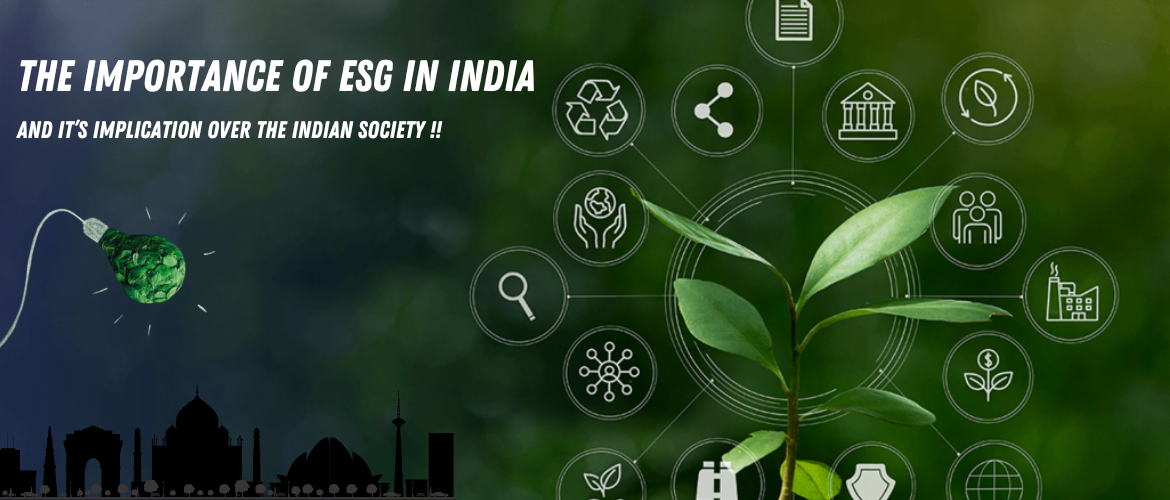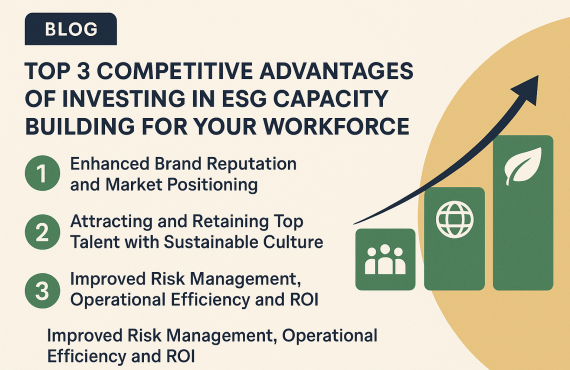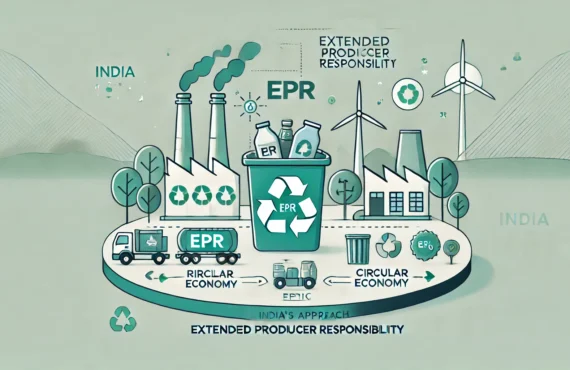The Importance of ESG in India: A 2024 Perspective.
As we enter 2024, the significance of Environmental, Social, and Governance (ESG) principles in India has never been more pronounced. In a rapidly evolving global landscape, integrating ESG into business practices is not just a trend but an imperative for sustainable growth and responsible stewardship. The convergence of economic ambition with environmental consciousness has placed India at a critical juncture where embracing ESG can catalyse transformative change across industries.
A Catalyst for Sustainable Growth :
India’s burgeoning economy, coupled with its diverse demographics, positions the country uniquely at a crossroads. As the nation aspires to be a global economic powerhouse, adopting ESG practices offers a robust framework for ensuring sustainable development. By prioritizing environmental protection, social responsibility, and effective governance, businesses can drive innovation while minimizing adverse impacts on society and the planet.
For instance, renewable energy initiatives, such as solar and wind projects, contribute to reducing carbon footprints, create jobs, and foster energy independence. Companies that adopt ESG principles are better equipped to navigate challenges posed by climate change, resource scarcity, and social inequalities. This alignment with ESG practices is crucial for building a resilient economy that thrives in harmony with nature and society, ensuring that growth is both inclusive and sustainable.
Attracting Investments :
In 2024, the investment landscape will be increasingly influenced by ESG considerations. Investors are becoming more discerning, seeking companies that deliver financial returns while demonstrating a commitment to ethical practices and sustainability. ESG-compliant businesses are positioned to attract capital from a growing pool of socially responsible investors, enhancing their market competitiveness.
Research indicates that companies with strong ESG credentials often outperform their peers in terms of stock performance and risk management. In India, initiatives like the Business Responsibility and Sustainability Report (BRSR) aim to provide a standardized framework for companies to disclose their ESG performance. By adopting ESG practices, Indian firms can tap into this lucrative opportunity, driving both growth and profitability while attracting investments that prioritize sustainability.
Enhancing Brand Reputation :
In today’s digital age, transparency and accountability are paramount. Consumers are increasingly aware of corporate practices and are making purchasing decisions based on a company’s ESG performance. A strong commitment to ESG can enhance brand reputation, foster customer loyalty, and differentiate businesses in a crowded marketplace.
For example, brands that actively engage in community development or implement sustainable sourcing practices often find that consumers are more willing to support them, even at a premium. In 2024, brands that embrace sustainability will resonate with consumers who prioritize ethical consumption, creating a positive feedback loop for business growth. By leveraging social media and digital platforms, companies can effectively communicate their ESG initiatives, building a loyal customer base that values responsible practices.
Navigating Regulatory Landscapes :
The Indian government is ramping up its focus on sustainability and responsible business practices, introducing policies that align with global ESG standards. Initiatives such as the National Action Plan on Climate Change (NAPCC) and various state-level sustainability programs underscore the government’s commitment to fostering an environment conducive to sustainable business practices.
As regulations evolve, companies that proactively adopt ESG frameworks will be better positioned to navigate compliance challenges. This foresight not only mitigates risks associated with regulatory penalties but also enables businesses to stay ahead of changes, ensuring long-term viability and success. Furthermore, organizations that align their strategies with government policies can benefit from incentives and support, facilitating smoother transitions toward sustainable operations.
Driving Innovation :
ESG principles act as a catalyst for innovation. Companies that embrace sustainability are often at the forefront of developing cutting-edge solutions to address environmental challenges and societal needs. For instance, the rise of electric vehicles (EVs) in India exemplifies how businesses can innovate to meet both market demand and sustainability goals. Major automotive companies are investing heavily in EV technology, driven by a combination of consumer demand and regulatory pressures.
In 2024, the integration of ESG into corporate strategies will likely accelerate research and development, fostering a culture of innovation that benefits both businesses and communities. This shift towards sustainable practices will not only enhance operational efficiency but also unlock new market opportunities. By focusing on ESG-driven innovation, companies can create products and services that align with the values of environmentally and socially conscious consumers.
Building Resilient Supply Chains :
Another crucial aspect of ESG in India is the focus on building resilient supply chains. As global disruptions—whether due to pandemics, geopolitical tensions, or climate change—continue to pose risks, companies must rethink their supply chain strategies. Implementing ESG principles can lead to more sustainable sourcing practices, reduced carbon footprints, and stronger relationships with local communities.
For example, businesses that prioritize fair labour practices and ethical sourcing not only comply with regulations but also build trust with consumers. Companies can leverage technology to enhance supply chain transparency, ensuring that their suppliers adhere to sustainable practices. By fostering strong relationships with suppliers who share similar values, organizations can mitigate risks and enhance their reputations.
Conclusion :
As we embrace 2024, the importance of ESG in India cannot be overstated. By integrating these principles into business strategies, companies can contribute to a more sustainable and equitable future while driving growth and resilience. The journey toward responsible business practices is not merely an obligation; it is an opportunity to lead the charge toward a brighter, more sustainable India.
In this transformative era, those who prioritize ESG will not only thrive but will also play a pivotal role in shaping the nation’s future. As India navigates the complexities of economic growth and environmental sustainability, the integration of ESG principles will be crucial in ensuring that the country emerges as a leader on the global stage, committed to fostering a more just and sustainable world.



















